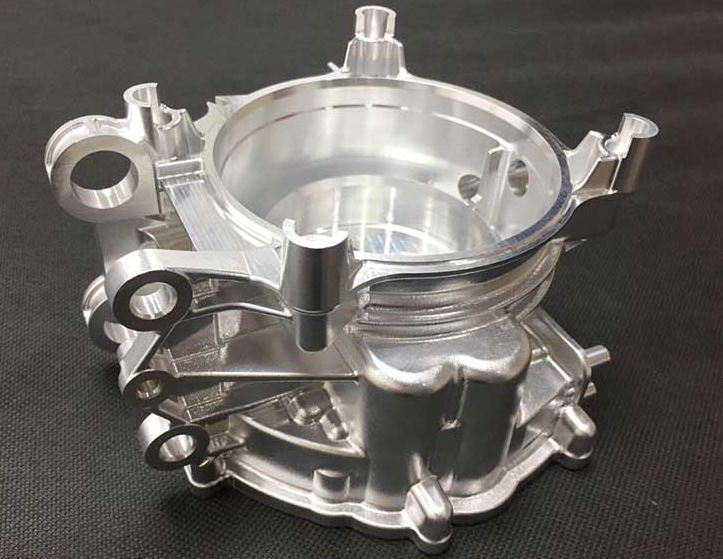Fascination About Stahl Specialty Company
Fascination About Stahl Specialty Company
Blog Article
A Biased View of Stahl Specialty Company
Table of ContentsThe Only Guide for Stahl Specialty CompanySome Ideas on Stahl Specialty Company You Should KnowStahl Specialty Company for BeginnersThe 20-Second Trick For Stahl Specialty CompanyWhat Does Stahl Specialty Company Mean?
Chemical Comparison of Cast Light weight aluminum Alloys Silicon promotes castability by reducing the alloy's melting temperature level and enhancing fluidity throughout casting. In addition, silicon adds to the alloy's strength and put on resistance, making it useful in applications where sturdiness is important, such as automotive components and engine components.It also improves the machinability of the alloy, making it much easier to process into completed items. This way, iron adds to the overall workability of aluminum alloys. Copper boosts electrical conductivity, making it beneficial in electric applications. It additionally enhances rust resistance and contributes to the alloy's overall stamina.
Manganese contributes to the strength of aluminum alloys and boosts workability. It is commonly utilized in functioned light weight aluminum items like sheets, extrusions, and accounts. The presence of manganese aids in the alloy's formability and resistance to splitting during manufacture processes. Magnesium is a light-weight component that offers stamina and influence resistance to light weight aluminum alloys.
It allows the production of lightweight parts with outstanding mechanical residential or commercial properties. Zinc improves the castability of light weight aluminum alloys and assists regulate the solidification procedure during casting. It improves the alloy's strength and hardness. It is often found in applications where elaborate shapes and fine information are required, such as ornamental castings and certain automobile parts.
The Stahl Specialty Company Statements
Because aluminum-silicon alloys have excellent casting buildings, high gas residential properties, easy procedures, and outstanding deterioration resistance, aluminum-silicon alloys are most frequently made use of in the die-casting market at home and abroad. At the exact same time, aluminum-silicon alloys are also fairly very early and widely acknowledged alloys created and utilized in die-casting. After continual research and enhancement, the majority of the current global mainstream aluminum-silicon alloys have actually been completed and are absolutely nothing more than A356, A360, A380, ADC12, B390, and A413.
The main thermal conductivity, tensile strength, yield strength, and prolongation vary. Amongst the above alloys, A356 has the greatest thermal conductivity, and A380 and ADC12 have the cheapest.

Some Known Questions About Stahl Specialty Company.
In precision spreading, 6063 is well-suited for applications where complex geometries and top notch surface coatings are critical. Examples include telecommunication rooms, where the alloy's premium formability permits smooth and visually pleasing layouts while maintaining structural honesty. Similarly, in the Illumination Solutions industry, precision-cast 6063 components create stylish and reliable illumination fixtures that need complex forms and excellent thermal efficiency.
(https://www.sooperarticles.com/authors/796261/frances-howard.html)
The A360 exhibits remarkable prolongation, making it optimal for facility and thin-walled parts. In precision casting applications, A360 is appropriate for markets such as Customer Electronic Devices, Telecommunication, and Power Tools.

In precision casting, light weight aluminum 413 beams in the Consumer Electronic Devices and Power Devices industries. This alloy's superior rust resistance makes it an excellent option for exterior applications, ensuring durable, resilient items in the stated industries.
Unknown Facts About Stahl Specialty Company
The light weight aluminum alloy you select will significantly impact both the casting process and the homes of the final product. Because of this, you have to make your choice meticulously and take an enlightened method.
Figuring out the most appropriate aluminum alloy for your application will mean evaluating a wide variety of qualities. The initial classification addresses alloy features that affect the production process.
The alloy you select for die spreading directly impacts numerous aspects of the spreading process, like exactly how very easy the alloy is to collaborate with and if it is vulnerable to casting problems. Hot cracking, also called solidification fracturing, is a regular die spreading defect for light weight aluminum alloys that can result in interior or surface-level tears or fractures.
The Ultimate Guide To Stahl Specialty Company
Certain light weight aluminum alloys are extra at risk to warm splitting than others, and your choice must consider this. Foundries in Missouri. It can harm both the actors and the die, so you ought to look for alloys with high anti-soldering homes.
Corrosion resistance, which is already a notable feature of light weight aluminum, can differ significantly from alloy to alloy and is a necessary characteristic to take into consideration relying on the environmental conditions your item will be revealed to. Use resistance is another residential or commercial property commonly looked for in aluminum items and can distinguish some alloys.
Report this page